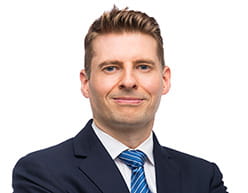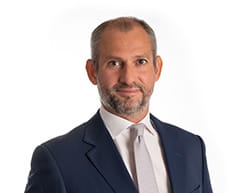Across the GCC, Western-style pension provision is a relatively new concept and most states operate a basic 'end of service benefit' gratuity accrual scheme, handing a lump sum of accrued cash to departing employees.
Technically, this is known as a defined benefit scheme. In the latest of a series of new laws and updates, the Dubai International Financial Centre (DIFC) has announced that it is due to substitute the current gratuity scheme with a low-cost savings plan for DIFC expatriate employees offering them a choice of up to 10-12 passive investment funds on a restricted platform to ensure the annual management cost remains low. This will allow the employees to control how their money is invested, selecting between a cautious, balanced or aggressive portfolio. There will also be a default option for those unsure of the choice to make.
According to the DIFC government, the current defined benefit scheme is not fit for purpose in a modern economy; as such, the new scheme is seen as an "enhancement and improvement" to the current benefit scheme and is aimed at assisting employers to attract and retain new talent and ensuring that employers can adequately fund the accruing liability.
The project is set to go live on 1 January 2020 and the new scheme is intending to charge employee members an annual management fee of approximately 1.25%-1.5% on invested assets (but this fee could be lower).
Equiom, a global trust services provider, has been appointed as the master trustee of the new scheme plan with Swiss insurer Zurich Middle East selected as the scheme administrator. It will be interesting to see how this scheme develops in the DIFC, and whether it will be adopted by other GCC jurisdictions, onshore and offshore.
1. How will it work?
As of 1 January 2020, all employers in the DIFC will be required to pay (on a monthly basis, so as to ensure that the DEWS for each employee is fully funded) contributions on behalf of its employees into the DEWS, whilst employees may (at their discretion) also make their own contributions into such scheme. Failures by employers to comply with their obligations will likely be liable to fine and other potential sanctions. It is anticipated that outside of the DEWS, employers will be able to establish their own qualifying schemes, the rules of which are yet to be fully announced.
2. Who makes contributions to the scheme?
Employer contributions will be mandatory under the DEWS scheme. Employees will also be able to make voluntary contributions to it, up to 100% of salary.
Where employers are currently not required to fund their accrued end-of-service obligations to employees, this will be mandatory under the new scheme. As it stands, based on a fixed statutory formula based on the employee’s years of service and final salary, the DIFC government has announced that: "Contributions are expected to be cost neutral compared to the existing gratuity system. These have yet to be finalized but are expected to be around 5.83% of basic salary for where service is below 5 years and around 8.33% above 5 years of service."
3. When can employees access the funds?
Whilst an employee is employed by their employer in the DIFC they will be unable to withdraw from the DEWS, it is only when they change employer or leave the employment of a DIFC based entity, that the ability to withdraw becomes available. There is no deadline by which funds from the DEWS need to be withdrawn. That said, after employment has ended no further employee contributions can be made and any funds that are left in the DEWS will continue to be subject to a scheme management charge.
Notably, it is anticipated (but not yet confirmed) that any withdrawal of funds from the DEWS could be made to a bank account anywhere in the world, which would alleviate any issues with an individual not holding residency in the UAE from withdrawing their funds.
4. How does the Annual Management Charge work?
The DIFC government has announced that DEWS’ costs will be met using an annual management charge levelled on invested assets. The DIFC expects to model this fee on the management charges imposed by best-practice occupational saving schemes in other countries.
The fee is paid to the scheme master trustee and administrators Zurich and Equiom. The DIFC spokesman confirmed that when it comes to the charges, the fund administration and fund management costs will be borne by the employee via a small management fee.
5. How will this assist in attracting and retaining talent in the DIFC?
The existing scheme suffers from several key problems which can, in some cases, undermine confidence. The two key problems are that (a) benefit payments are not secure, and (b) employers are exposed to open-ended liabilities. This means that under the current scheme there is always a risk that the employee will not get paid these benefits.
The new scheme is likely to boost confidence in the financial centre as, inter alia: (a) globally, the developed world is moving towards funded DC benefit schemes and the new scheme is an attempt to move towards this too, and (b) best practice is to use a trust arrangement as this provides benefit security and a robust governance and operational framework. Thus, under the new scheme, employees will benefit from:
- Receiving their end-of-service gratuity, irrespective of an employer going out of business.
- Having their contributions professionally managed in a cost-effective and flexible manner.
- Visibility and a choice as to how their savings will be managed, catering to a range of risk appetites and including Shari’ah compliant options.
- The chance to earn a return on their contributions, which is currently not the case.
- Voluntary savings options on top of employers’ contributions, offering an incentive to save more towards their retirement.

